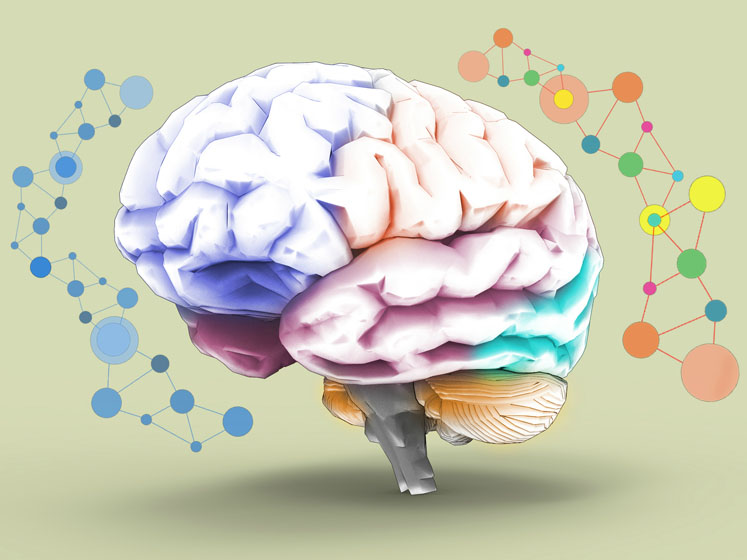Watch DSM's webinar 'Is CBD a promising therapy for mental health disorders?' here
Cannabidiol (CBD), one of the major cannabinoids found in the Cannabis sativa plant, holds huge promise as a therapeutic ingredient across a number of health areas, including central nervous system diseases such as epilepsy, pain disorders, cancer and more.1 With increasing evidence demonstrating the potential of CBD across pharmaceutical applications, there has also been growing interest in the role of CBD as a treatment for mental health disorders.
KSR: What role could CBD play in the treatment of mental health disorders?
MC: An estimated 5–10% of people globally suffer from anxiety related disorders that impact their quality of life and cause ripple effects on wider society.2 Furthermore, approximately 280 million people worldwide have depression, which is a major contributor to the overall global burden of disease.3
The prevalence of mental health disorders including anxiety and depression has been rising during the past decade and recent developments, such as the COVID-19 pandemic, global instability and increased social media use, can contribute to poor mental health outcomes.
Although a variety of traditional pharmaceutical treatments for these pathologies is available, many drugs are not suitable for everyone and can produce unpleasant side-effects (such as dizziness and fatigue).4 Therefore, there is a pressing need to develop novel treatments that better support growing mental health needs and CBD could be a promising candidate.

In a recent review exploring the role of CBD in managing psychiatric disorders, CBD was described as a generally safe and well-tolerated pharmacotherapy with limited abuse liability.5 This supports CBD as a potential option for the treatment of various psychiatric conditions, with the most promising preliminary clinical findings showing that the molecule may help to relieve symptoms of psychosis and anxiety.6–9
In addition, in early phase human studies, CBD was found to be beneficial for the management of both early course and chronic schizophrenia.10 For other psychopathological conditions – such as neurocognitive, personality, eating, obsessive-compulsive, traumatic stress, dissociative and somatic disorders – existing data is still either inconclusive or insufficient.11
KSR: What are the main safety and regulatory issues surrounding the use of CBD?
MC: CBD is commonly used by individuals to manage psychiatric symptoms and up to 50% of patients who use it do not report this use to their doctors.12 This highlights two points; there is a widespread perception that CBD can effectively support mental health, but there are also significant potential risks associated with choosing a product that includes unregulated, low-quality CBD.
Low-quality CBD products are commercially widespread and often have a composition that does not match label descriptions. These low-quality CBD products may contain high concentrations of delta-9-tetrahydrocannabinol (THC) — the other major cannabinoid found in Cannabis sativa plants that produces the intoxicating, psychoactive effects often associated with marijuana use. These trends point to a clear market demand for high-quality CBD products.
KSR: What can be done to further realise the potential of CBD as a treatment for mental health disorders?
MC: Preclinical and clinical studies have shown some promising data regarding the therapeutic value of CBD, but trials in humans have been inconsistent in both design and outcome.5
Owing to the high heterogeneity in both treatment populations and characteristics under study (including formulation, dosing and duration), the role of CBD in managing mental health disorders — from anxiety related disorders to psychosis, insomnia and depression — is yet to be determined.
Although the science is promising, more robust randomised controlled trials (RCTs) with larger sample sizes and longer follow-up periods are necessary to confirm the efficacy of CBD to treat these conditions. Interventional studies using purified CBD are also warranted, whereas larger-scale, placebo-controlled clinical trials are needed to investigate the effects of CBD as an adjunct to psychological therapy.13

A more transparent regulatory landscape will also help to ensure that the CBD ingredient used in both over-the-counter (OTC) and prescription (Rx) pharmaceutical products is effective, safe and of appropriate quality. CBD content in these products needs to be more strictly regulated with lab monitoring measures to guarantee a particular dosage of CBD and ensure that THC concentrations do not exceed allowable levels.5
KSR: How should companies approach the development of CBD-based therapies to target mental health disorders?
MC:To realise the full potential of CBD-based therapies — and ultimately create bespoke, purpose-led drug products that target mental health disorders — companies need to focus on accelerating early stage drug development in the rapidly evolving CBD space.
Through a strategic partnership with a pioneer in cannabinoid science, Brains Bioceutical, DSM offers customers an innovation platform and comprehensive end-to-end support as they explore the therapeutic possibilities of CBD. Brains’ leading portfolio of naturally derived, THC-free cannabinoid actives offer the highest quality and purity.
However, given the complex market and regulatory landscape, it takes more than ingredients to enter the CBD market with confidence. The right kind of partnership will make all the difference to the success of a drug product.
DSM offers more than 70 years of experience in terms of producing and securing the supply of quality active pharmaceutical ingredients (APIs). Combining customised solutions with unique specialist services ranging from innovation expertise to managing the market entry registration and regulatory process for APIs, DSM is helping customers to develop purpose-led CBD-based pharmaceuticals to support patient health and well-being on a global scale.
As the importance of mental health and well-being continues to gain prominence and the stigma surrounding these disorders decreases, more people will be looking for effective treatment options. With so much research on the effects of CBD currently under way, we can look forward to new scientific insights in the near future — and hope for novel solutions that could bring relief to millions of individuals globally.
References
- https://doi.org/10.1186/s42238-021-00061-5.
- https://onlinelibrary.wiley.com/doi/full/10.1002/da.22711.
- http://ghdx.healthdata.org/gbd-results-tool?params=gbd-api-2019-permalink/d780dffbe8a381b25e1416884959e88b.
- https://doi.org/10.1080/14656566.2018.1491966.
- https://doi.org/10.14740/jocmr4159.
- https://doi.org/10.1177/2045125319881916.
- https://doi.org/10.1186/s42238-019-0012-y.
- https://doi.org/10.1007/s13311-015-0387-1.
- https://www.ncbi.nlm.nih.gov/pmc/articles/PMC7052834/.
- https://doi.org/10.1016/j.neuro.2019.08.002.
- https://doi.org/10.1002/jcph.1387.
- https://pubmed.ncbi.nlm.nih.gov/35392393/.
- https://doi.org/10.1007/s11920-019-1026-z.
